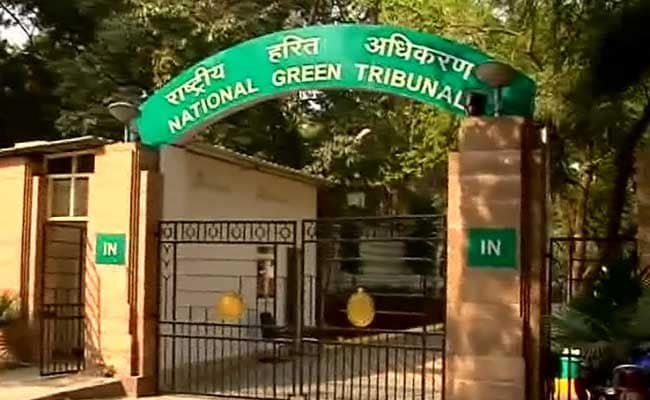
Noting that there was serious failure on part of the Uttar Pradesh government to control pollution in western UP rivers, the National Green Tribunal (NGT) has directed the state to pay Rs 5 crore as 'performance guarantee' to implement the action plan for rejuvenation of the rivers.
A bench headed by NGT Chairperson Justice Adarsh Kumar Goel directed the UP chief secretary to personally look into the issue of availability of potable water to the affected inhabitants of Saharanpur, Muzaffarnagar, Shamli, Meerut, Bagpath and Ghaziabad districts.
"In view of serious failure of the state of Uttar Pradesh so far and alarming situation of pollution of the river affecting public health, we find it necessary to require furnishing of performance guarantee in the sum of Rs 5 crore to the satisfaction of the Central Pollution Control Board by Uttar Pradesh to the effect that action plan will be implemented within six months. On failure, the amount will be forfeited," the bench said.
The green panel also asked the chief secretory to provide requisite logistics to the committee, headed by Justice SU Khan (retd) with representatives of the CPCB and the Environment Ministry, so that the committee can oversee the implementation of the action plan to restore the rivers to their original condition.
The committee, which was formed by the tribunal to submit an action plan, told the NGT that discharge of untreated sewage and industrial effluents in Muzaffarnagar, Shamli, Meerut, Baghpat, Ghaziabad and Gautam Budh Nagar is mainly responsible for the pollution of the river.
"It found that prosecution was initiated against 118 non-complying industries. Orders for closure were passed against non-compliant industries out of which 28 orders were revoked or suspended. Show cause notices were also directed to be issued to some of the polluting industries," it noted.
The committee informed the tribunal that it could not perform its functions with regard to health check on account of noncooperation of authorities and could not undertake awareness programme in absence of assistance of authorities.
"Hand pumps from which contaminated water is extracted and consumed are still functional. No measures have been taken by the authorities for supply of potable drinking water in the affected areas. No effort has been made to identify the victims for compensation," the committee said in its report.
The NGT today ordered closure and registration of cases against 124 industrial units which are polluting the Kali, Krishna and Hindon rivers in six districts of western Uttar Pradesh.
Advocate Gaurav Kumar Bansal appeared for the petitioner NGO Doaba Paryavaran Samiti in the case.
Observing that people have a fundamental right to clean air and water, the NGT had earlier directed the district magistrates of these six districts to submit an action plan for providing potable water to the villagers in a time bound manner.
The green panel had directed the UP government to immediately seal all hand pumps which are discharging contaminated water and sought an action plan to clean the Kali, Krishna and Hindon rivers.
The tribunal had asked the state government to devise health benefit schemes for persons suffering from ailments caused due to drinking polluted water.
The NGO, headed by CV Singh, had alleged that more than 50 villagers have died of cancer in western UP due to consumption of contaminated groundwater.
It was alleged by the petitioner that groundwater in Saharanpur, Muzaffarnagar, Shamli, Meerut, Bagpath and Ghaziabad districts was being polluted as a result of effluent being released underground by reverse boring by the industries.
Earlier, the UP Jal Nigam had faced the NGT's ire for its failure to comply with a 2015 order directing it to seal all hand pumps which were releasing contaminated groundwater in six districts of the western part of the state.
It had earlier directed the state government and its officials to provide potable drinking water to the villagers of the six districts through GPS-installed vehicles.
(Except for the headline, this story has not been edited by NDTV staff and is published from a syndicated feed.)Track Latest News Live on NDTV.com and get news updates from India and around the world

